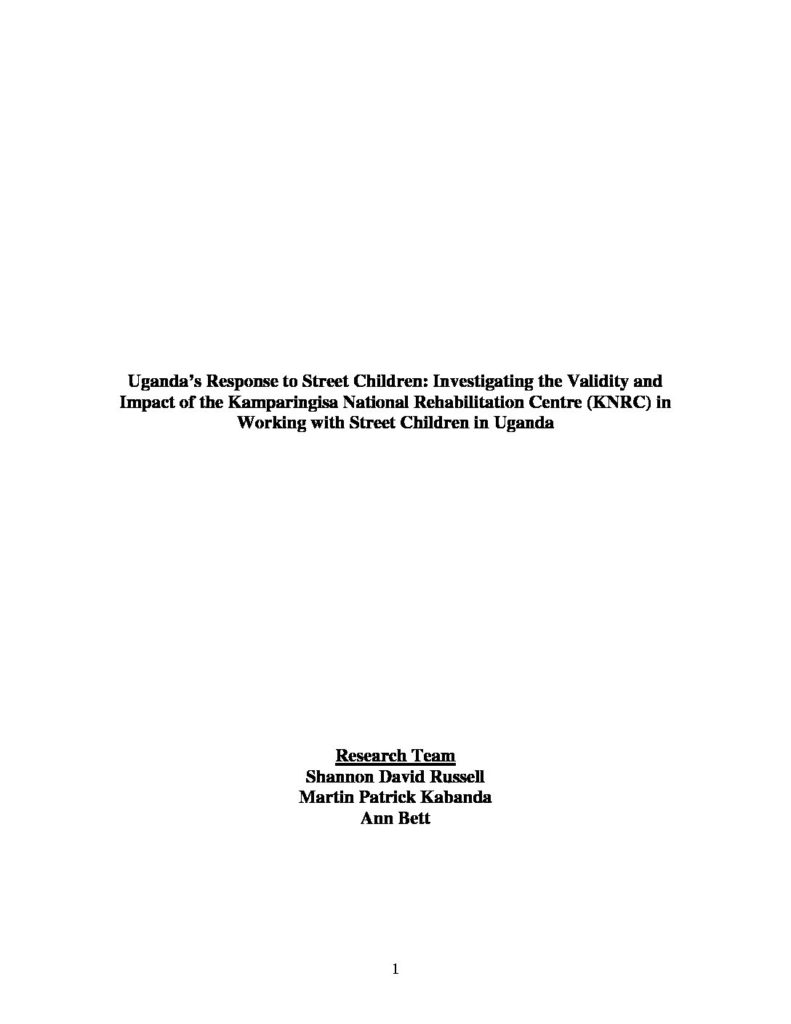
Uganda’s Response to Street Children: Investigating the Validity and Impact of the Kamparingisa National Rehabilitation Centre (KNRC) in Working with Street Children in Uganda
Downloads
Summary
Street children have become a world wide phenomenon and often solutions seem either to be short sighted or instituted for alternative reasons besides the welfare of children. However, the world is slowly waking to the fact that there are consequences beyond human suffering to turning a blind eye to street children. Uganda has moved forward with a plan to get children off of the streets, rehabilitated and repatriated. This plan has the advantage of partnerships between different levels of government and NGOs. The response is a trial that focuses on Uganda’s capital city Kampala and includes relocating children to the Kamparingisa National Rehabilitation Center. As other cities in Uganda, and the global community look for answers which address the dynamic social issues presented by street children the KNRC response will undoubtedly be looked to as a potential model. However, even creative plans need to be investigated, examined and scrutinized before they can most effectively help children. Thus, this paper is designed to provide a broad overview of the KRNC model from the perspective of the main stakeholders in the community. From this starting point research can be done to more effectively develop a framework from which to study this model.
After interviewing the stakeholders, it would appear that KNRC is a plan with wide governmental acceptance and to a large extent, acclaim from the community. However, there are problems recognized by the government, the community, and in particular the children themselves the NGOs working with them. Understanding these problems and developing responses that are owned by the whole community is going to be a process requiring reordering of fiscal priorities, gathering helpful input from all stakeholders, and a willingness to forge strong, lasting partnerships with all involved.
Discussion
Users can discuss this report and make suggestions for future updates. You must be signed in to submit a comment.
No comments
Join the conversation and
Become a Member Existing member loginbecome a member.